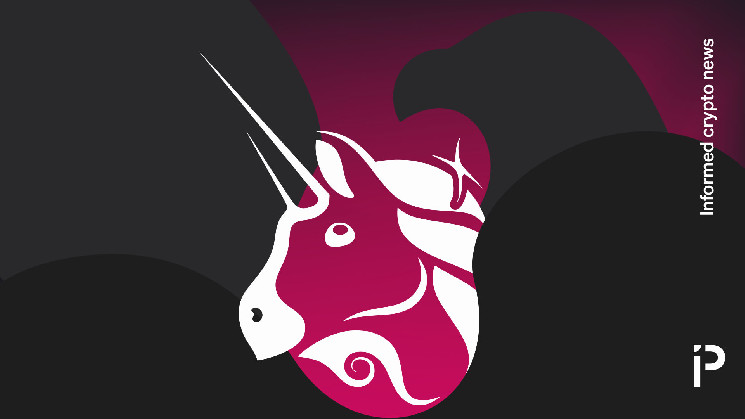With social media aflutter with news that Uniswap had received a Wells notice, it’s important to define exactly what Uniswap and a Wells notice are.
Uniswap is what’s known as a decentralized exchange — a platform that relies on smart contracts to execute buy and sell orders for customers instead of a matching engine controlled by a centralized entity. While the domain and front end of the website are able to be seized or shut down, many aspects of Uniswap — like the backend and the protocol — cannot simply be seized to stop customers from trading.
Additionally, Uniswap offers its own token ($UNI) that allows traders or investors to participate in the governance of the protocol. This is similar to how shares allow investors to have a say in the direction of a company.
But what is a Wells notice? Put simply, it’s a notification by the Securities and Exchange Commission (SEC) that it has finished an investigation into a company, foundation, or individual, and plans to bring an enforcement action.
Uniswap gets notice
No one outside of the SEC and Uniswap has seen the Wells notice or been privy to the investigation. However, there are only a handful of issues that the SEC could be looking into and almost all of them rely on acknowledging that Uniswap is an exchange.
It will be the responsibility of the SEC to prove without any doubt that Uniswap is acting as an exchange, which according to rule 3b-16(a) is defined as ‘any organization, association, or group of persons that (1) brings together orders for securities of multiple buyers and sellers; and (2) uses established, non-discretionary methods under which such orders interact with each other, and through with the buyers and sellers entering such orders agree to the terms of the trade.’
But the idea that Uniswap meets this definition isn’t a surefire bet. Commissioner Mark Uyeda stated last year that “expanding the scope of the exchange definition in an ambiguous manner might suppress further beneficial innovation.”
A lawyer familiar with the case said that the government’s argument would suggest that “no one would be exchanging (utilizing the decentralized Uniswap protocol) if not for Uniswap, so it is an exchange,” while the defense will state that it “outsources the matching and rule settings.”
Read more: Uniswap’s new trading fee neglects $UNI holders
If Uniswap fails to mount a reliable legal defense, the lawyer said it could expect “fines, an injunction, and general deterrence.” They added that this case is “the opposite of a chickenshit case” — cases that pick on small fries and try to achieve a settlement so that the price of prosecution is minimal.
They also stated the case will take “at least a year, for sure,” and that the chances of Uniswap reaching a settlement are slim to nil.
 protos.com
protos.com
